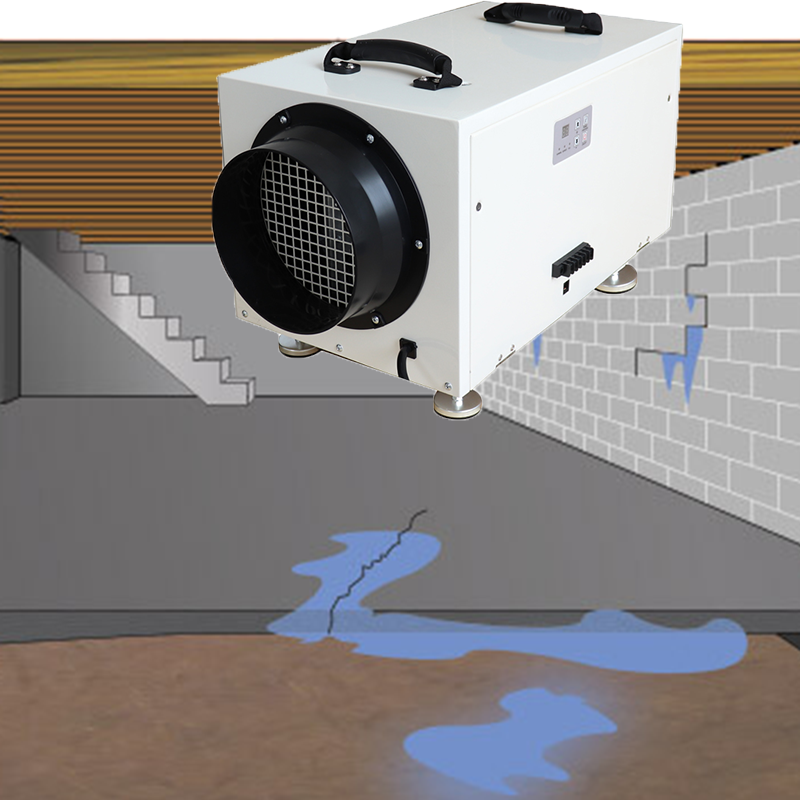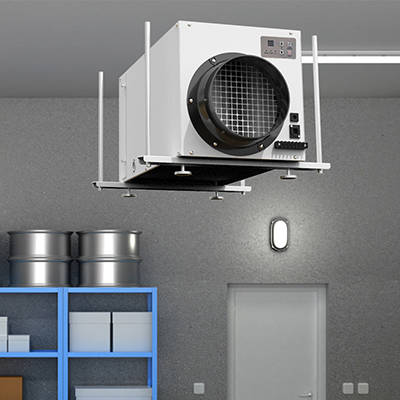Dehumidifiers can be very effective in reducing moisture and humidity in basements. Basements are often damp and prone to high humidity levels, which can lead to issues such as mold growth, musty odors, and even structural damage to the home.
Are dehumidifiers good for basements?
A dehumidifier can help to remove excess moisture from the air, creating a drier environment and reducing the risk of these problems.
Using a dehumidifier in a basement can offer several benefits, including:
Preventing mold growth: Mold thrives in damp environments, and basements are often a prime location for mold growth. A dehumidifier can reduce the moisture levels in the air, making it less hospitable for mold to grow.
Improving indoor air quality: High humidity levels in a basement can lead to musty odors and poor indoor air quality. An energy efficient dehumidifier for basement can help to remove excess moisture, reducing these odors and improving the overall air quality.
Protecting your home: High humidity levels can also cause structural damage to your home, such as the warping and cracking of wood floors and walls. A dehumidifier can help to prevent this damage by reducing the moisture levels in the air.
Dehumidifiers can be very effective at reducing moisture and humidity levels in basements, making them a good option for anyone looking to improve the overall comfort and health of their home. Preair is a reliable dehumidifier company that has many good quality dehumidifiers for sale.
Do all basements need a dehumidifier?
Not necessarily all basements need a dehumidifier, but many basements do benefit from using one. Basements are often damp and have high humidity levels, which can lead to problems such as mold growth, musty odors, and even structural damage to the home.
If your basement is prone to dampness, has poor ventilation, or experiences high humidity levels, a built in dehumidifier for basement can help to remove excess moisture from the air and create a drier environment. This can help to prevent mold growth, reduce odors, and improve indoor air quality.
However, if your basement is already well-ventilated and doesn't experience high humidity levels, a dehumidifier may not be necessary. It's important to consider your specific situation and the conditions of your basement when deciding whether or not to use a dehumidifier.
What are the best dehumidifiers for basements?
There are several factors to consider when choosing a dehumidifier for your basement, including the size of your basement, the level of humidity, and your budget. Here are some options to consider:
Frigidaire FFAD7033R1 - This is a highly rated 70-pint dehumidifier that can quickly and efficiently remove excess moisture from a basement up to 1,400 square feet in size.
Keystone KSTAD70B - This is another highly rated 70-pint dehumidifier that is ideal for larger basements up to 4,500 square feet. It has a built-in pump for continuous drainage and an auto-restart feature that automatically restarts the unit after a power outage.
hOmeLabs HME020031N - This is a budget-friendly 50-pint dehumidifier that is ideal for smaller basements up to 1,000 square feet. It has a built-in pump for continuous drainage and an easy-to-use control panel.
Preair WH70 - This is a whole home 70 pint dehumidifier that can be installed directly into your HVAC system. It is ideal for larger homes with high humidity levels and can remove up to 70 pints of moisture per day.
When choosing a dehumidifier for your basement, it's important to choose a unit that is appropriately sized for the space and has features that meet your needs. Additionally, you should look for units with automatic shut-off features, adjustable humidity controls, and low noise levels.
Post time: May-10-2023
 +86-13376814803
+86-13376814803  robert@hzhongtai.com
robert@hzhongtai.com 















